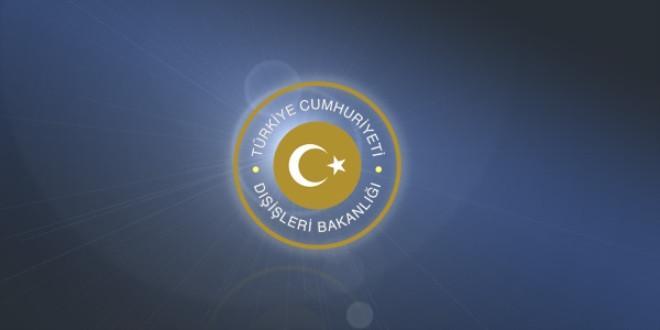
The Arab League remains silent, unable to demonstrate determination in support of the legitimate government in Libya, the Turkish Foreign Ministry said on Dec. 31.
Turkey has long supported a political settlement in Libya and an end to attacks and the establishment of a complete ceasefire among the warring sides, spokesman Hami Aksoy said in a statement.
The statement came on the heels of an Arab League council meeting in Cairo on the ongoing conflict in Libya.
"We take note of the reference to the Libyan Political Agreement dated 2015 (Skhirat Agreement) and the emphasis on a political solution as the only way for sustaining stability in Libya in the declaration issued by the Council of the Arab League following the extraordinary session on Libya held on 31 December 2019 at the level of Permanent Representatives," the statement said.
"In this regard, we would like to remind that the letter and spirit of UN Security Council Resolution 2259, primarily, intend to support and strengthen the Government of National Accord as the sole legitimate representative of Libya and call upon all UN members to act in this manner.”
Aksoy stressed that a permanent and comprehensive political solution in Libya could be achieved by deterring those who would seek faits accomplis through military means.
"On the other hand, contrary to the Libyan Political Agreement and UNSC Resolution 2259, it is obvious that the Arab League has remained silent and failed to decisively support international legitimacy against the months-long, foreign supported military offensive against Tripoli, the capital city, by the so-called Libyan National Army," he said.
"From the onset, Turkey has been underlining the necessity of an immediate and full ceasefire in order to reach a political solution in Libya. With this understanding, we are actively participating and contributing to the Berlin Process.”
Turkey will continue to support the Tripoli-based government to achieve lasting peace and stability in Libya, the statement said.
Libya accuses Arab League of double standards
Meanwhile, the envoy of Libya's UN-recognized government to the Arab League on Tuesday accused the bloc of "double standards" on the conflict in Libya.
Saleh Shammakhi, who represents the Tripoli-based Government of National Accord (GNA), decried what he called the "worst exploitation" by the Arab League of a maritime agreement between Libya and Turkey.
Speaking at a meeting of permanent representatives of the pan-Arab organization, he said that Libya had called upon the Arab League to review its "aggression" against Tripoli through military chief Khalifa Haftar, but that the bloc had not responded.
"The Arab League is applying a double standard policy where it did nothing when we [the GNA] called for an emergency meeting at the start of Haftar's aggression," Shammakhi said at the meeting held at the request of Egypt in Cairo.
He added that such a policy pushes the GNA to reconsider the relevance to stay in the organization, questioning the role of the Arab League and it representativeness of all Arabs.
Shammakhi asserted that the GNA faced deliberate distortions and attempts to de-legitimize it, stressing that the maritime agreement with Ankara "was signed in accordance within international law in a way that does not "harm the rights or sovereignty of any country."
He added that Tripoli was prepared to receive or dispatch experts for the purpose of explaining and clarifying the terms of the agreement to any country.
Turkey's presidency on Dec. 30 submitted a motion to the Parliament Speaker's Office on sending troops to Libya. The parliament is set to debate the motion on Jan. 2.
On Nov. 27, Ankara and Libya's GNA signed two separate pacts: one on military cooperation and the other on maritime boundaries of countries in the Eastern Mediterranean.
Libya has remained beset by turmoil since 2011, when a bloody NATO-backed uprising led to the ouster and death of long-serving President Muammar Gaddafi after more than four decades in power.
Since then, Libya's stark political divisions have yielded two rival seats of power -- one in Tobruk and another in Tripoli -- and a host of heavily-armed militia groups.